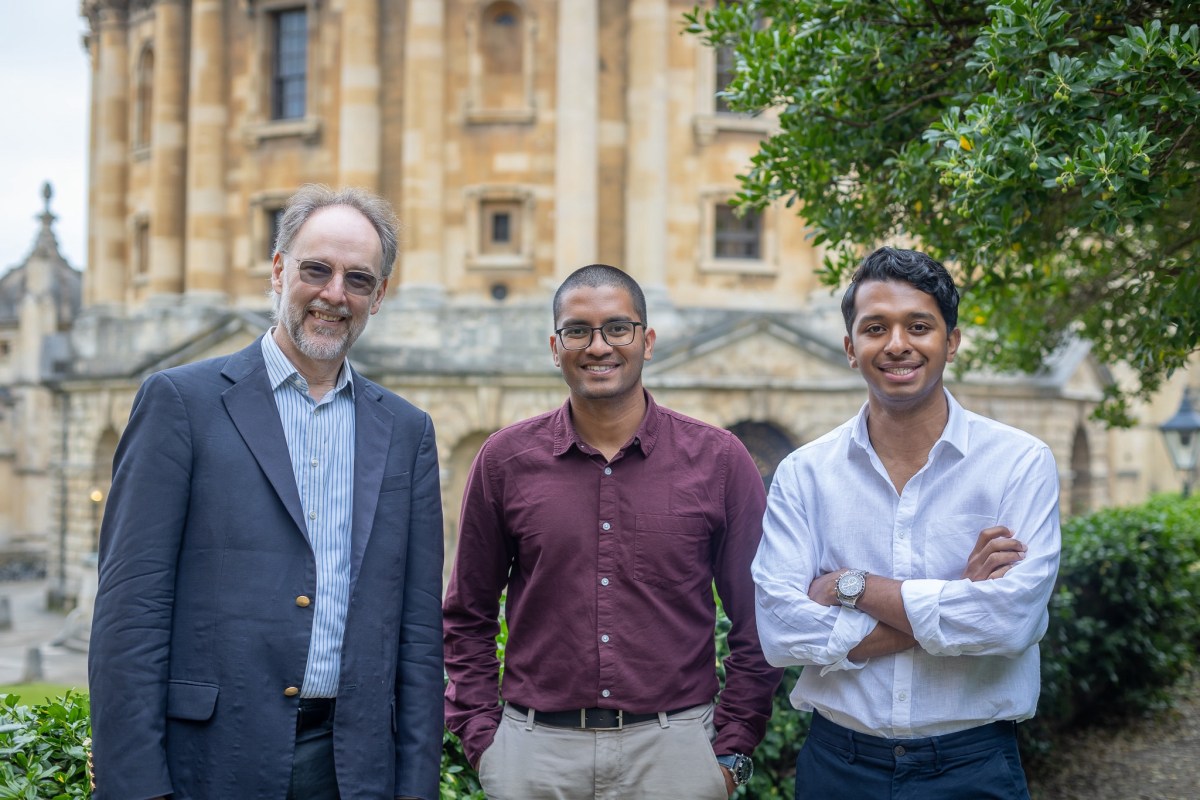Ashwin Nandakumar and Ashwin Jainarayanan were working on their doctorates at adjacent departments in Oxford, but they didn’t know each other. Nandakumar, who was studying oncology, one day stumbled across a curious dataset for prostate cancer, with which he needed sequencing help.
“I reached out to a few friends asking to help me analyze this data,” Nandakumar said. “They said,’ There’s another guy with the name Ashwin, you should connect with him.’”
The two Ashwins instantly clicked, and soon after their meeting, they began working in the lab of Jainarayanan’s academic adviser, Michael Dustin, a professor of molecular immunology.
When Nandakumar and Jainarayanan were getting ready to graduate, they initially planned to get jobs with large pharmaceutical companies. But they were also fascinated by Dustin’s research. “Mike discovered a whole new feature of the immune system that people didn’t know existed,” Nandakumar said.
Nandakumar and Jainarayanan decided to explore the idea of turning that research into a company. They were introduced to Y-Combinator’s bio partner, Surbhi Sarna, and she convinced the two Ashwins to apply to the storied accelerator.
“That conversation changed our lives,” Nandakumar said. “We decided we’re not joining Big Pharma. We’re going to make our own Big Pharma.”
Nandakumar, Jainarayanan and Dustin formed Granza Bio, a biotech startup working on a novel approach to delivering immunotherapy and other “attack particles” to various parts of the body. The two Ashwins entered the YC Winter 24 batch.
Granza’s approach drew a lot of interest from investors. “Our plan initially was to raise $2.5 million to get very crucial experiments done,” Nandakumar said. “We started fundraising on [a] Wednesday and hit that target on a Friday.”
Since investors were lining up to invest in Granza, the two Ashwins decided to raise a bigger round that would allow them to expand the biotech’s research beyond the initial experimentation phase.
On Wednesday, Granaza Bio announced that it has raised a $7.14 million seed round led by Felicis and Refactor, with participation of Y Combinator.
Granza Bio fit perfectly into Felicis’ thesis: that the body’s own immune system could be activated to treat cancers and other autoimmune diseases,Tobi Coker, deal partner at Felicis, told TechCrunch. “The research out of Professor Dustin’s lab is completely novel,” Coker said, adding that Granza’s approach to the delivery of therapeutics across organ systems could have broad applications in oncology and autoimmune disease treatment.
While Felicis is best known as a firm that made early bets on tech companies like Notion, Canva, Adyen, Cruise, Flexport and Shopify, the 18-year-old venture outfit isn’t a stranger to the biotech investment world. About 10% to 15% of the firm’s capital is invested in biology-focused startups, Coker said. Felicis’ best-known life sciences companies include now-publicly traded Gingko Bioworks and Recursion Pharmaceuticals.
“I think we have a good eye for new technological paradigms and potential platform companies,” Coker said. (In biotech, platform companies focus on creating underlying tools that could be used to develop numerous therapies.)
Felicis and other investors in Granza Bio are making a bet that the startup’s therapeutic cargo delivery mechanism can eventually help develop a whole host of new drugs.
👇Follow more 👇
👉 bdphone.com
👉 ultraactivation.com
👉 trainingreferral.com
👉 shaplafood.com
👉 bangladeshi.help
👉 www.forexdhaka.com
👉 uncommunication.com
👉 ultra-sim.com
👉 forexdhaka.com
👉 ultrafxfund.com
👉 ultractivation.com
👉 bdphoneonline.com
